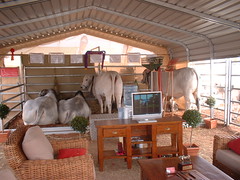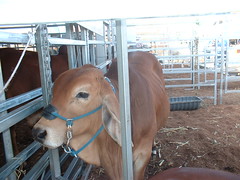Theory as tool
I'm frequently thinking about theory and its uses in research and now and then I come across examples of theory put to 'good use'. I found one yesterday.
Hassett, D. (2006). Technological difficulties: A theoretical frame for understanding the non-relativistic permanence of traditional print literacy in elementary education. Journal of Curriculum Studies, 38(2), 135-159.
What Hassett does in the article is to use Foucault's notion of 'technologies' to explore "how it is possible that early-literacy programming maintains traditional print literacy as the primary focus of instruction in an age of multiple literacies and multi-modal forms of communication." (p. 136)
In her examination, Hassett examines the 'literacy myth', Clay's concepts about print, shared writing and independence as an aspect of literacy instruction. I loved the last two. By coincidence, I have previously tried to address aspects of early writing instruction currently said to provide scaffolding for learning. I never quite pulled it off (don't think I was using the right tools), however, Hassett does using theory. For example, she examines shared writing and points out how teacher construction of texts in conjuntion with students is likely to produce written texts that are strongly located in print-based notions of writing (so linear, left-right placement and so on).
Even better was her examination of independence as a construct in early literacy education. It's too length to quote but here is a snippet from the argument:
"If the learning environment and the training have been done 'correctly', the individual functions in self-motivated and self-regulated ways -with high self-esteem and a sense of self-worth for jobs well done. if an individual is not using the well-appointed, print-rich classroom, not a problem of pedagogy, not a problem of the curriculum content, not a problem of the training, but a problem of the individual. Given that the classroom and routines are structured in such a way that students are to feel secure, happy, and motivated, then, from the beginning of the school year on, the expectation is that individuals ill be enthusiastic about being an individual who is learning in the classroom. Those who aren't have 'problems'! (p. 152)
Anyhow, anyone who is interested in thinking outside the current literacy regime would find this article a very, very good read.


